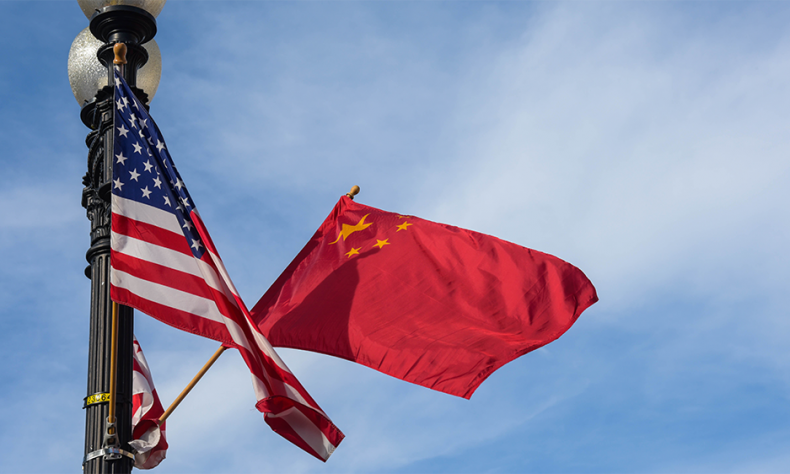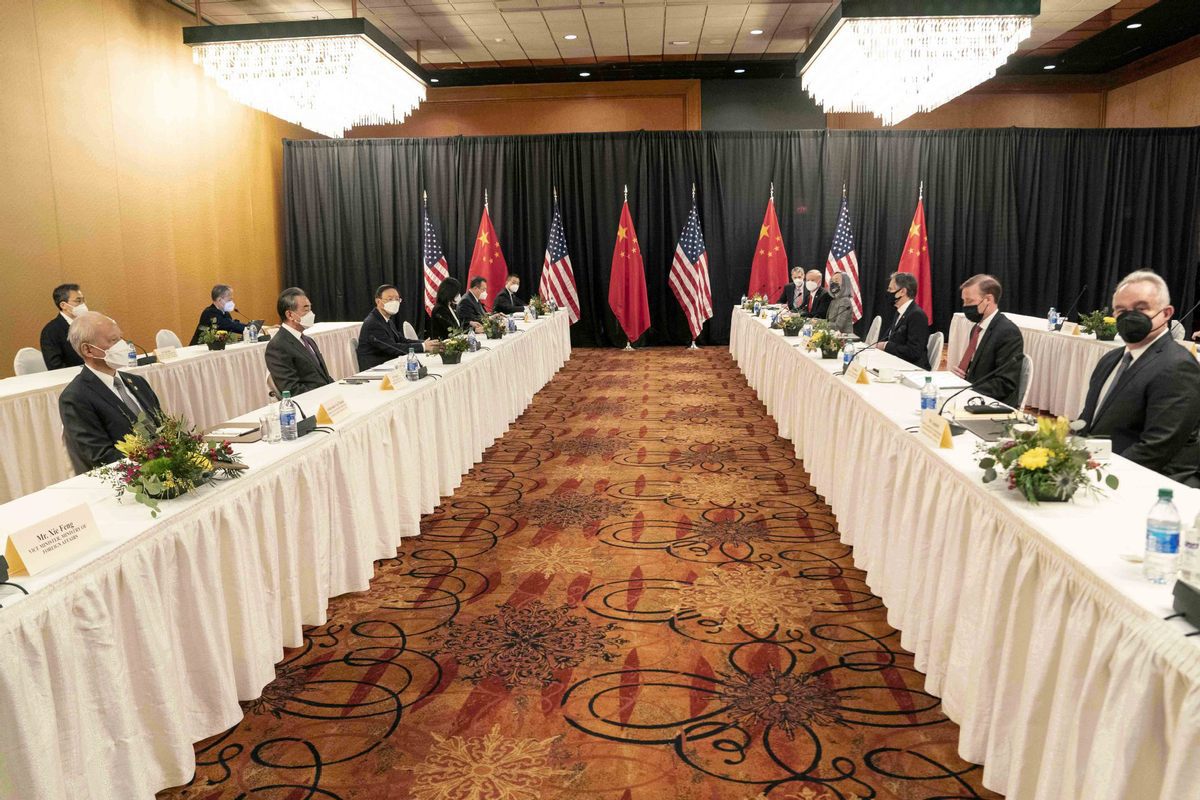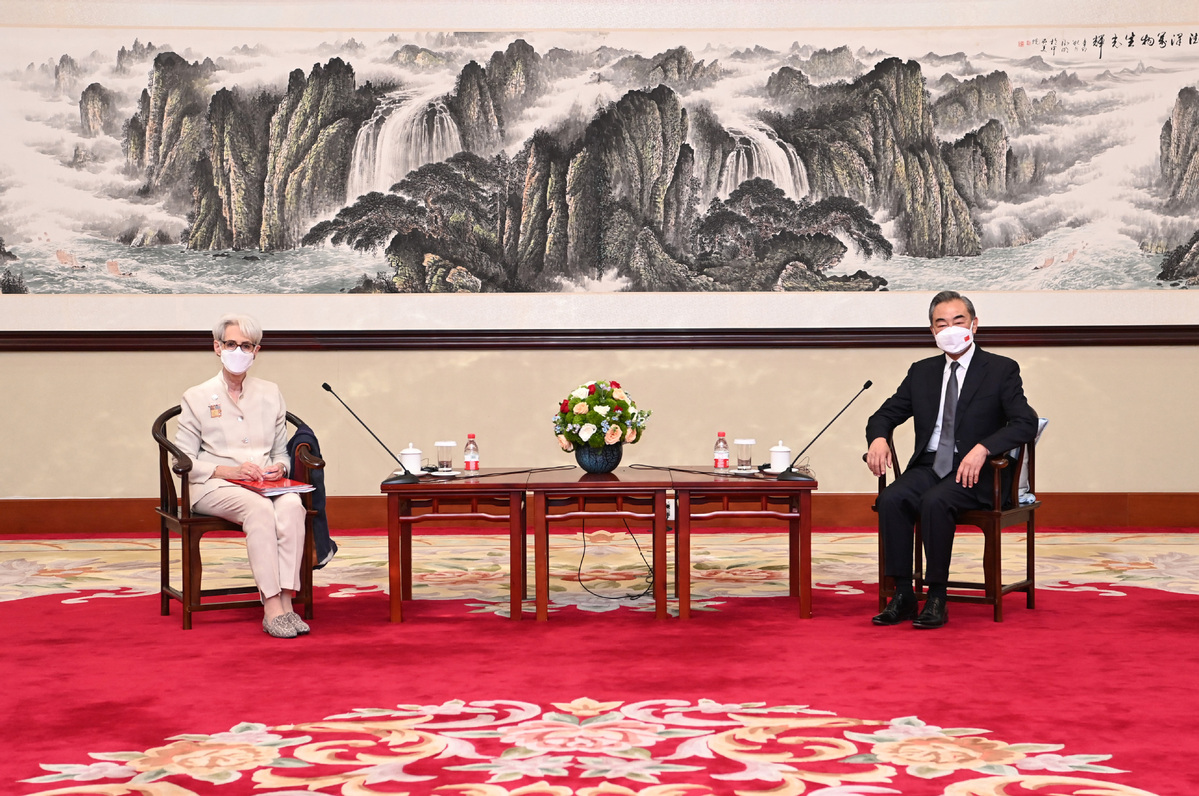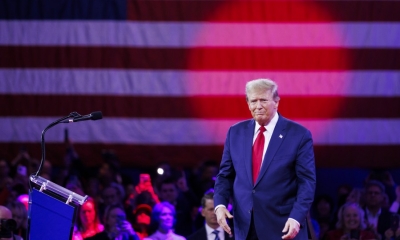Tianjin Meeting and Washington’s Lost Opportunity

Will Washington pay attention to redlines China has presented and alter its policy of containment and suppression as perceived by Beijing?
Has the United States lost a historic opportunity for a constructive and cooperative relationship with China? The strained early meetings in Alaska and in Tianjin with the new Biden administration seem to signal that this is so. How did this come about and where are we heading?
In the two recent meetings, the Chinese side showed that a new phase in Chinese diplomacy toward the US is underway. The Nixon opening to China, followed up by President Jimmy Carter, could have led to a cooperative and constructive bilateral relationship. But, since the Obama “Pivot” to the Pacific, Washington showed itself increasingly hostile to China during the Trump administration and today.
President Joe Biden is half a year into his term of office. Instead of signaling a less confrontational stance, the Biden administration has continued the Obama-Trump policy line and sharpened it. Congress is mesmerized by a bipartisan anti-China hysteria. What else can Beijing conclude than Washington’s Cold War mentality and policy will not be jettisoned any time soon?
Thus, it is logical and predictable that China is making significant adjustments in its foreign and defense policy as well as in its economic policy. Expecting limited cooperation and continued confrontation from the US a change of tack by the Chinese ship of state is called for and prudent considering the increasing headwinds from across the Pacific.
President Xi Jinping in 2013, at his informal summit meeting with Obama in California, proposed a new type of major power relations. The Obama administration did not follow up on this and neither did Trump. Biden, despite some familiarity with China, has ignored the proposal which today is all but a dead letter given the US brush off, not to mention the continuing official and elite Cold War mentality.

What happened in the Alaska and Tianjin meetings? The significant fact is that they revealed China has changed its approach to the US. For years, Chinese diplomacy has been along a soft line attempting to conduct relations with an accommodative approach hoping for a change in US attitude and policy. On the one hand, this was unrealistic. On the other hand, China needed time to gain comprehensive strength so as to be in a position to deal with the US on an equal footing.
The new realistic approach takes the US head on but remains prudent. After years of strident Washington megaphone diplomacy with a laundry list of demands about Tibet, Xinjiang, Hong Kong, and the like, Beijing’s new approach responds in kind. This is logical as the soft line policy got nowhere except to gain time for self-strengthening which China has done.
During both meetings, the Chinese side took a firm and principled stance in the face of US lecturing, posturing, and virtue signaling. A new significant feature of interaction was the announcement in public of Chinese red lines and the presentation of its own lists to the US about American unacceptable behavior.
China is a great power now and expects to be treated by Washington with respect on the basis of equality and sovereignty. The self-serving US narrative of single-handedly saving the world in WWII and thus having the right to boss and bully the world forever, meaning hegemony, is an American delusion. China doesn’t have to accept US hegemony nor does any other country. There is the United Nations organization and International Law which serve to set a vision and norms for the international community and ideals of peace and development.
What are the intellectual foundations of the new turn in China’s policy toward the US?
A careful examination of authoritative statements by high-ranking officials gives some indications. Perhaps the most famous of Mao Zhedong’s theoretical writings is his essay “On Protracted War”. The Foreign Languages Press in Beijing published an English edition in 1952 so his words are hardly a secret. Mao spoke of the challenge of “encirclement and suppression” and taking a long and positive view of struggle.

Is it any surprise that after US diplomat Wendy Sherman in her first meeting with counterparts got a blunt dressing down in Tianjin? This was followed up with stern words to her from State Councilor and Foreign Minister Wang Yi who warned that the US must choose wisely because otherwise bilateral relations would head toward confrontation. The foreign minister forcefully rejected “stepped up containment and suppression” by the US side and so echoed Mao’s famous essay.
Guiding China and its destiny, the Communist Party of China (CPC), pays close attention to theory and practice in Chinese conditions with the international situation as context. An informed observer of China would take every word by President Xi at the Centenary Ceremony seriously. His firm patriotic stance and theoretical guidance were a powerful signal to the CPC and to the Chinese people.
Superficial Western pundits and journalists squawk about so-called “wolf warrior” diplomacy on the part of China. They are missing the dragon whose patience is at an end and the lion reacting to provocation. Should we expect Chinese overreaction? No. The leadership is prudent and realistic but also flexible depending on circumstances.
Perhaps one might conclude that we are seeing the emergence of a new diplomacy with Chinese characteristics: Wushu diplomacy. It has the feel of wushu, Chinese martial arts which were called “military fighting techniques” two thousand years ago. The term wushu itself goes back to the Liang Dynasty (502-557) and is found in the poetry of the Ming Dynasty. What is important is the philosophy and mode of thought embodied in wushu to include an idea of proportional response as needed when deterrence does not work.
Can the downward spiral in US-China relations be halted? That depends. Will Washington pay attention to redlines China has presented and alter its policy of containment and suppression as perceived by Beijing? Washington must snap out of its delusion and conduct realistic and constructive diplomacy.
The article reflects the author’s opinions, and not necessarily the views of China Focus.
 Facebook
Facebook
 Twitter
Twitter
 Linkedin
Linkedin
 Google +
Google +







